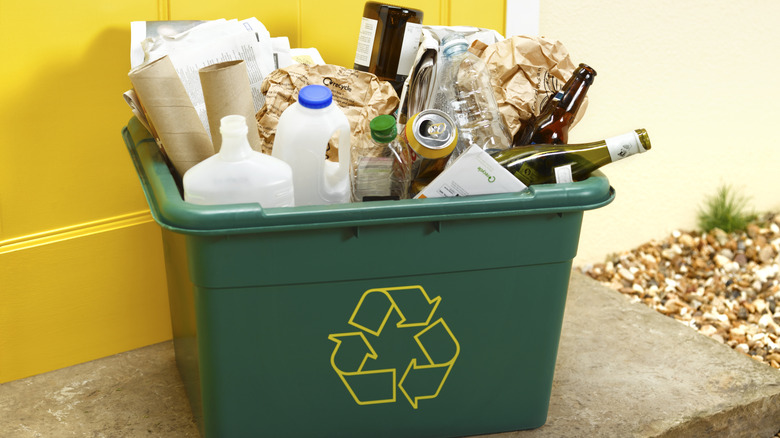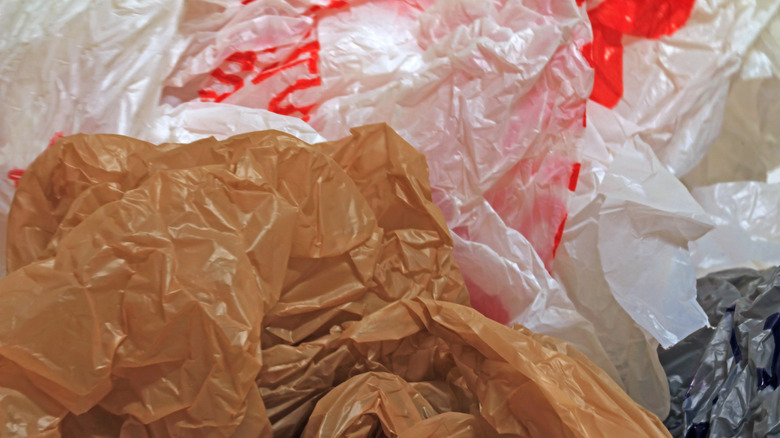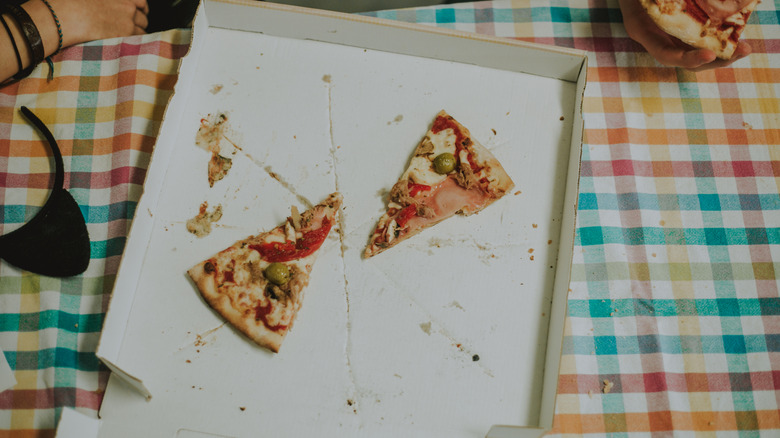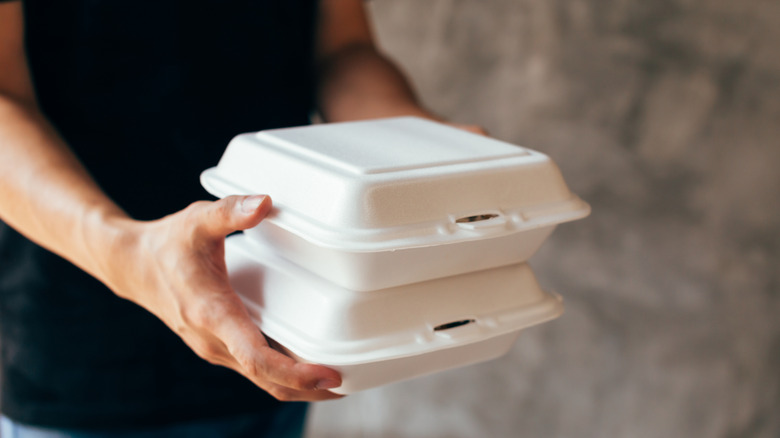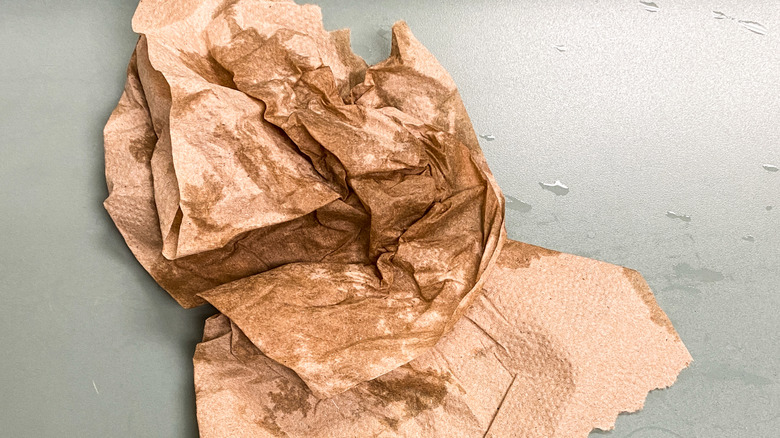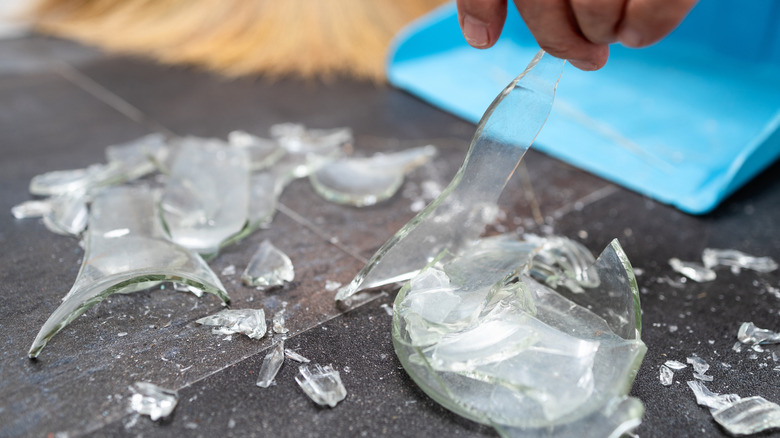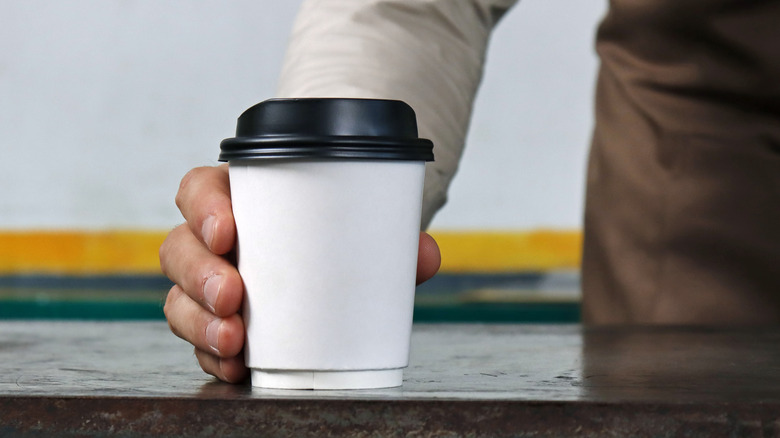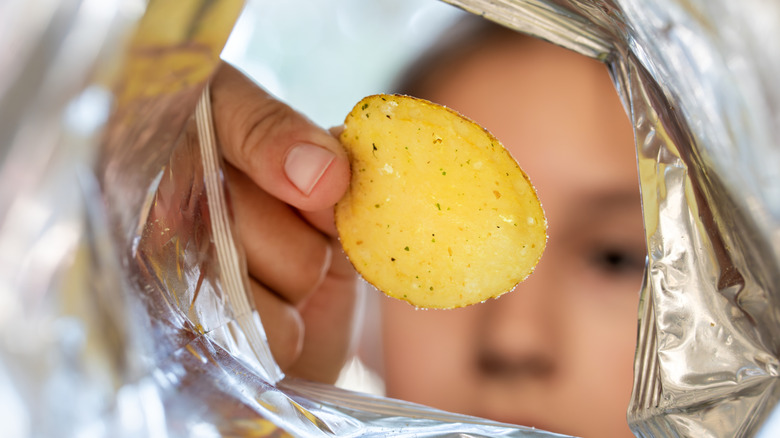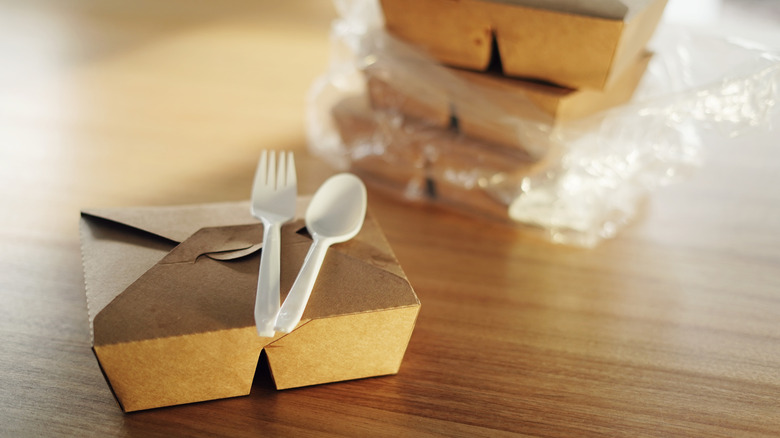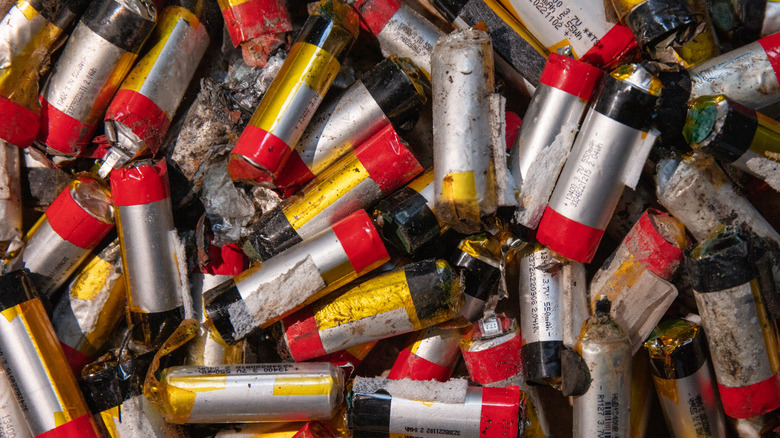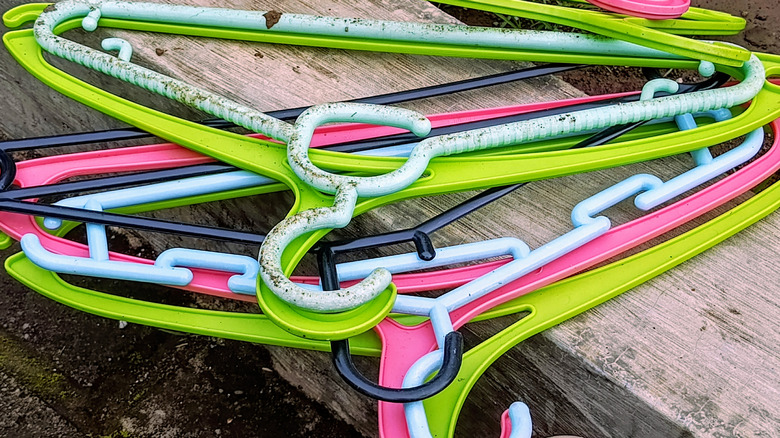10 Common Items You Actually Shouldn't Be Putting In Your Recycling Bin
If you tend to throw items in your recycling bin without confirming whether they're actually recyclable, you may be guilty of "wish-cycling." Despite your good intentions and wishful thinking, disposing items in the wrong bin causes more harm than good. By sending contaminated products to recycling, you risk spoiling all the other eligible contents in your recycling bin. It also creates complications at the waste management facility, potentially causing damage to the equipment and putting employees at risk. For example, throwing items like broken glass and batteries into your recycling bin could increase the risk of injuries, accidents, and even fires. In fact, "wish-cycling" actually increases your environmental impact as it requires extra resources to transfer the items to landfill.
Though many plastic items are thought to be recyclable and may even have a triangular arrow symbol printed on them, some disposable plastics that you likely encounter every day are actually not recyclable despite their misleading packaging. These include single-use utensils like forks and knives, plastic bags, and certain types of packaging. Truly making a positive difference starts with knowing which items belong in the recycling bin and which items to throw in the trash, or better yet, repurpose and avoid sending to landfill altogether.
Plastic bags and plastic packaging
Plastic shopping bags, bubble wrap, bread bags, and other forms of thin plastic packaging are usually not accepted by most curbside recycling programs. That's because thin plastics often have to be sorted by hand to avoid getting caught in the sorting machines, whereas larger durable plastics like milk jugs can easily be broken down by machinery. However, it's important to check your local guidelines first. Some grocery stores also have drop-off programs for plastic bags. Alternatively, you can experiment with creative ways to repurpose plastic grocery bags around the house.
Greasy pizza boxes
Corrugated cardboard is usually recyclable, but your leftover pizza box likely won't make the cut. While it's possible that your local recycling program may accept greasy or soiled cardboard, generally it is not eligible for recycling if it has been contaminated. In fact, your greasy pizza box could actually spoil all the clean cardboard in your recycling bin. If in doubt, you can simply cut the box and only recycle the part that is clean.
Styrofoam products
Styrofoam is the plastic-derived material used for packaging and disposable food containers, including the grocery store trays for meat and fish. Not all styrofoam is destined for landfill — some recycling plants do accept it as long as it has not been contaminated. However, recycling styrofoam can be a complicated process and some facilities do not have the resources to do so. Smaller communities with fewer residents usually do not collect enough styrofoam waste for it to be recycled and remain cost-effective. In this case, it is best to check with your local guidelines before recycling styrofoam.
Used napkins and paper towels
Though other paper products like newspaper, printer paper, and even books are accepted for recycling in most places, paper towels and napkins are not. In general, paper towel and tissue fibers are too short for recycling. Most manufacturers of tissues in the U.S. use recycled paper, and the fibers are shortened during the recycling process which prevents them from being used again. Plus, thin paper is typically contaminated with food, grease, or cleaning products. If they are not contaminated, paper towels and tissues can usually be composted in an organic waste bin.
Broken glass and mirrors
Broken glass is not recyclable, as the shards can present a safety risk for workers. There are also other glass items that should be disposed of in another way, even if it's still in good shape. The reflective coating on mirrors makes them ineligible for recycling, and window panes and light bulbs have a different melting point than glass jars. Instead, wrap the items carefully and put them in the trash. Alternatively, you can upcycle your old mirror into all kinds of new statement pieces for your home instead of sending it to the landfill.
Coffee cups
Many facilities do not accept disposable coffee cups for recycling due to their plastic coating, designed to trap heat inside the cup and keep it dry. This requires a specialized process of removing the plastic coating before the cup can be recycled, which many municipalities do not have access to. While plastic lids are usually recyclable, cups should be thrown in the trash unless they are labeled otherwise. Reduce landfill waste by bringing your own reusable cup to the cafe; some chains will even give you a discount for it.
Potato chip bags
Potato chip bags are made from a variety of materials, including plastic, paper, and aluminum foil. Mixed material products like these cannot be recycled because the layers cannot be separated. Similar rules apply to candy bar wrappers and disposable snack bags. Even pet food bags may fall in this category. Some food, beverage, and personal care brands have recycling programs that are free for customers to participate in through a service called TerraCycle. Some of these include Late July Snacks, Lundberg Family Farms, Takis, and Entenmann's Little Bites.
Plastic utensils
Even if the plastic cutlery that came in your takeout bag has a recycling symbol on it, the ugly truth is that it is not recyclable. Plastic forks, knives, and spoons are too small for the machinery to process and may fall through, causing issues with the equipment. These utensils are among the most common type of plastic waste found in our oceans, according to Ocean Conservancy. There are all kinds of clever ways to repurpose plastic silverware around the house, but the best choice is to stick to reusable cutlery as often as possible.
Batteries
Because of the materials used in batteries, proper disposal is essential. For example, lithium-ion batteries often used for smoke detectors and other household items can pose a risk of fires or even explosions if they are not disposed of properly. These hazardous materials do not belong in your recycling bin and should be taken to a recycling drop-off center near you. The materials used in these batteries are designed to be preserved and reused to ensure a steady supply for the future. Check with your local waste collection authority to ensure that you are following the guidelines correctly.
Plastic household items
Many types of miscellaneous plastic items in your home cannot be thrown in the recycling bin. This includes things like plastic clothes hangers, toys, binders and other plastic accessories. These items are often too complicated to be recycled due to their bulky size or odd shape. The materials they are made of are also a contributing factor, as this could include non-recyclable materials known as thermoset plastics. If in doubt, check your local guidelines to see what items are eligible for recycling, or consider donating the items wherever possible.
